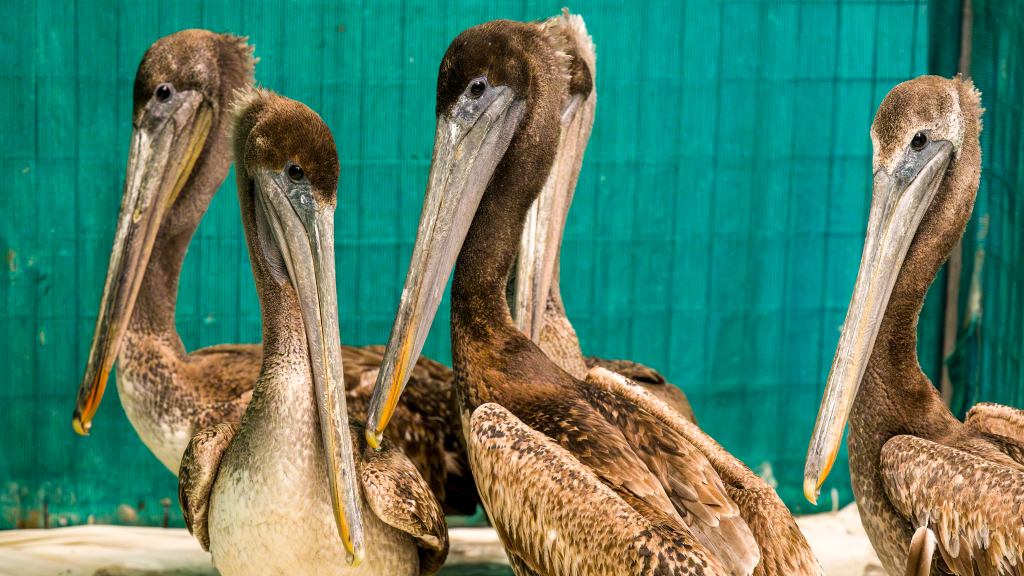Brown pelicans have been coming in starved, dehydrated and in desperate need of care, officials with the Wetlands and Wildlife Care Center said as they made a plea for support from the community.
A mass stranding of the species seen over the last few weeks, with birds found throughout Orange, San Bernardino and Riverside counties, has rescue teams worried and quickly running out of supplies, said Debbie McGuire, executive director of the center in Huntington Beach.
“They are all coming in at starvation level, half their body weight,” she said. “It’s really, really bad.”
In the past month, more than 80 brown pelicans have been brought into the center, with only 31 surviving. The center has gone through 500 pounds of fish in just the past week, McGuire said, and its supply is quickly dwindling as more of the birds are brought in by lifeguards and animal care responders throughout the region.
The reason behind the mass stranding is unclear, but McGuire said there must be something happening with their food source. Typically this time of year, the center would have only about half a dozen brown pelicans in its care, though in 2022 there was also a spike in strandings with hundreds brought in.
The birds typically dive into the ocean about 6 feet deep to forage on bait fish.
“What we know for sure is that once we start feeding them, they tend to respond – vitamins, food, liquids,” she said. “The biggest thing we need is money to buy fish.”
Blood work has confirmed the birds are malnourished and suffering from anemia, she said. A large percentage are also coming in entangled in fishing gear.
“They just don’t have any more energy because they haven’t been able to forage their food,” she said.
The birds have been adults and juveniles, some with broken wings that require them to be put down, she said. There’s also been a higher-than-normal number of western gulls and there are young sea lions being cared for at the Pacific Marine Mammal Center in…
Read the full article here







